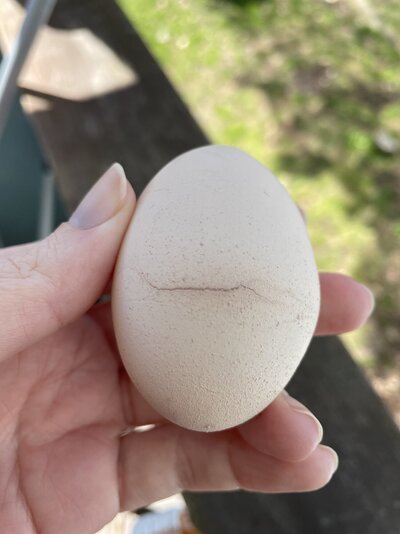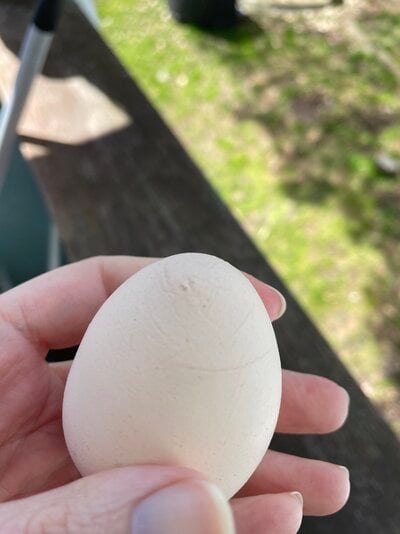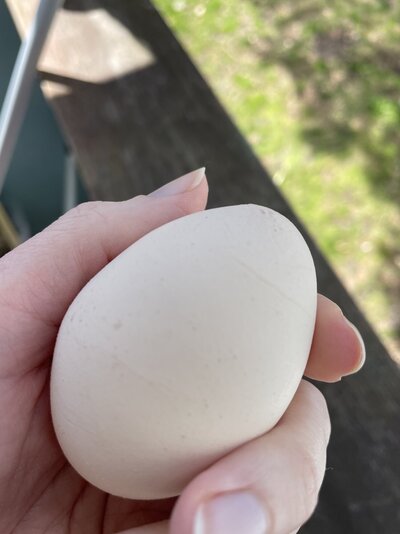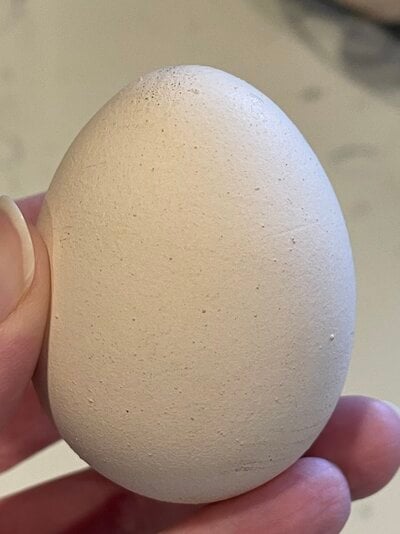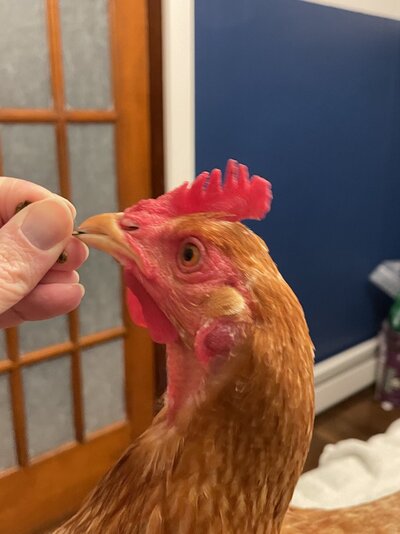Hello, I’m hoping to get some insight on my small flock. I have 3 birds (5yo, 2yo, 2yo) that have been contained in a covered run for months due to HPAI risk in Massachusetts. We lost a 4th (2yo) in October to a hawk and recently euthanized a 5th (5yo) due to an abdominal mass.
The remaining 5yo has scaly leg mites which we treated with permethrin, then elector psp, and continuing with green goo salve. She picks everyone else’s feathers. One 2yo is in great condition, equal in status to the 5yo, and lays normal eggs with strong shells.
The other 2yo (New Hampshire Red) has always been bottom chicken and is low weight. She didn’t molt last fall and has been laying unusual eggs for a few weeks. They are lighter in color, with thinner shells, and I think the yolk may break easily. Sometimes I find them broken in the poop tray. Sometimes I find egg and shell in separate places in the poop tray so I worry they may be breaking inside her. The egg in the poop tray is inaccessible once it falls in, so I don't think they could have moved it.
We feed Nutrena all flock (the 5yo hasn’t laid since her first season due to an infection that was treated) with supplements of soldier fly larvae and some veggies such as cucumber, spinach, kale, etc. The feed is in a steel Grandpa's feeder which is supposed to be rodent-proof and I think it is. We had rodent activity in the run, but I seem to have fixed that as of a couple weeks ago. Water is in a nipple drinker. They don’t seem to care for oyster shell but I provide it. I’ve been giving the NHR grower mash and crushed egg shells before I go to bed as an extra boost when her crop is emptier anyway.
I suspect Egg Drop Syndrome based on info from poultrydvm. I don’t really know what to do about it. I have a vet appointment Tuesday but would love more opinions and would like to treat her asap if I can because we go out of town may 4th.
Thank you so much!
The remaining 5yo has scaly leg mites which we treated with permethrin, then elector psp, and continuing with green goo salve. She picks everyone else’s feathers. One 2yo is in great condition, equal in status to the 5yo, and lays normal eggs with strong shells.
The other 2yo (New Hampshire Red) has always been bottom chicken and is low weight. She didn’t molt last fall and has been laying unusual eggs for a few weeks. They are lighter in color, with thinner shells, and I think the yolk may break easily. Sometimes I find them broken in the poop tray. Sometimes I find egg and shell in separate places in the poop tray so I worry they may be breaking inside her. The egg in the poop tray is inaccessible once it falls in, so I don't think they could have moved it.
We feed Nutrena all flock (the 5yo hasn’t laid since her first season due to an infection that was treated) with supplements of soldier fly larvae and some veggies such as cucumber, spinach, kale, etc. The feed is in a steel Grandpa's feeder which is supposed to be rodent-proof and I think it is. We had rodent activity in the run, but I seem to have fixed that as of a couple weeks ago. Water is in a nipple drinker. They don’t seem to care for oyster shell but I provide it. I’ve been giving the NHR grower mash and crushed egg shells before I go to bed as an extra boost when her crop is emptier anyway.
I suspect Egg Drop Syndrome based on info from poultrydvm. I don’t really know what to do about it. I have a vet appointment Tuesday but would love more opinions and would like to treat her asap if I can because we go out of town may 4th.
Thank you so much!

